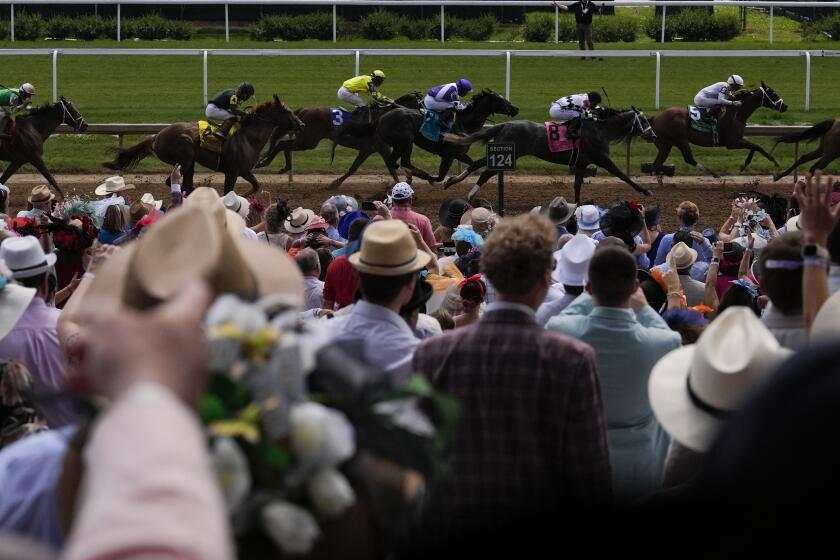PRO FOOTBALL : Not Everybody Is Losing Money in NFL Strike : Some Owners Are Clearing $1 Million a Week From Drop in Players’ Salaries
- Share via
WASHINGTON — While striking National Football League players are losing more than $20 million weekly in salary, some teams, including the Raiders and the Washington Redskins, are clearing $1 million a week more than normal by using replacement teams, according to NFL Players Assn. and management sources.
The main reason for the owners’ short-term windfall is a dramatic drop in player salaries, reducing the average cost of fielding a team from $1.05 million to $430,000 per week, according to M.J. Duberstein, NFLPA director of research.
According to NFLPA data, a player with the average NFL salary of $215,000--the owners say it is $230,000 annually--has lost approximately $40,200 in the three-week-old strike, and a player with the NFL median salary of $175,000 has lost $33,000. Neither figure includes incentive bonuses for playing time or statistics.
A league source said the Raiders made an extra $1 million for the first week of replacement games. The team’s player payroll, one of the league’s highest, exceeds $20 million annually, or $1.3 million per week since NFL players receive 16 paychecks a season. The average weekly player payroll per team is $837,000, according to NFLPA figures. Duberstein estimates teams are paying replacement players an average of $180,000 per week, or about $4,000 per man.
Duberstein figured the Redskins among the teams with the largest amount of additional net revenues for several reasons: a weekly pre-strike payroll almost $300,000 above the average; no regular players--active or injured--crossing the picket lines; ticket sales of 80% last week, including no-shows.
“Obviously, there are some substantial savings in player salaries,” said Sargent Karch, a former chief negotiator for the NFL Management Council.
As the strike continued, management fielded replacement teams Sunday for the second straight week and, according to Duberstein, most if not all the NFL’s 28 teams could be expected to enjoy larger net revenues than normal.
Some will be down from the previous week as more veteran players cross the picket lines. Of 1,585 players covered by the NFLPA, about 130 have crossed picket lines.
About 56 of those players are above or considerably above the league’s average salary, Duberstein said. Some teams are paying a few non-striking veterans as much combined as the rest of their replacement squads.
Duberstein cited the salaries of four New York Jets who crossed picket lines--Mark Gastineau, Joe Klecko, Marty Lyons and Joe Fields--as equaling those of all the replacement Jets. “If somebody said that, I wouldn’t doubt it,” Karch said.
Duberstein described the owners’ increased profits as “a very immediate cash-flow view of the strike. The long-term costs probably will be severe for the owners, based on past experiences.”
For instance, after a 57-day strike in 1982, it took 3 1/2 seasons for the attendance average to return to pre-strike levels, according to Jack Donlan, the owners’ chief negotiator.
The key issues, Karch said, are television and season tickets.
“Obviously, the damage to the clubs is significant. It’s awfully tough to calculate what the television damage is. We’ll have to rebate a fair portion of (the rights fees). Who knows what’s going to happen to the November payment? Hopefully, the strike will be over before then.”
According to Duberstein, playing replacement games is much more profitable for the owners than locking the players out, as management did during the ’82 strike. This year, when no games were played in Week 3 Sept. 27-28, the owners lost $1.2 million. Last week, with replacement games, average team revenue and savings were slightly more than $2.6 million while expenses totaled $430,000.
More to Read
Go beyond the scoreboard
Get the latest on L.A.'s teams in the daily Sports Report newsletter.
You may occasionally receive promotional content from the Los Angeles Times.










